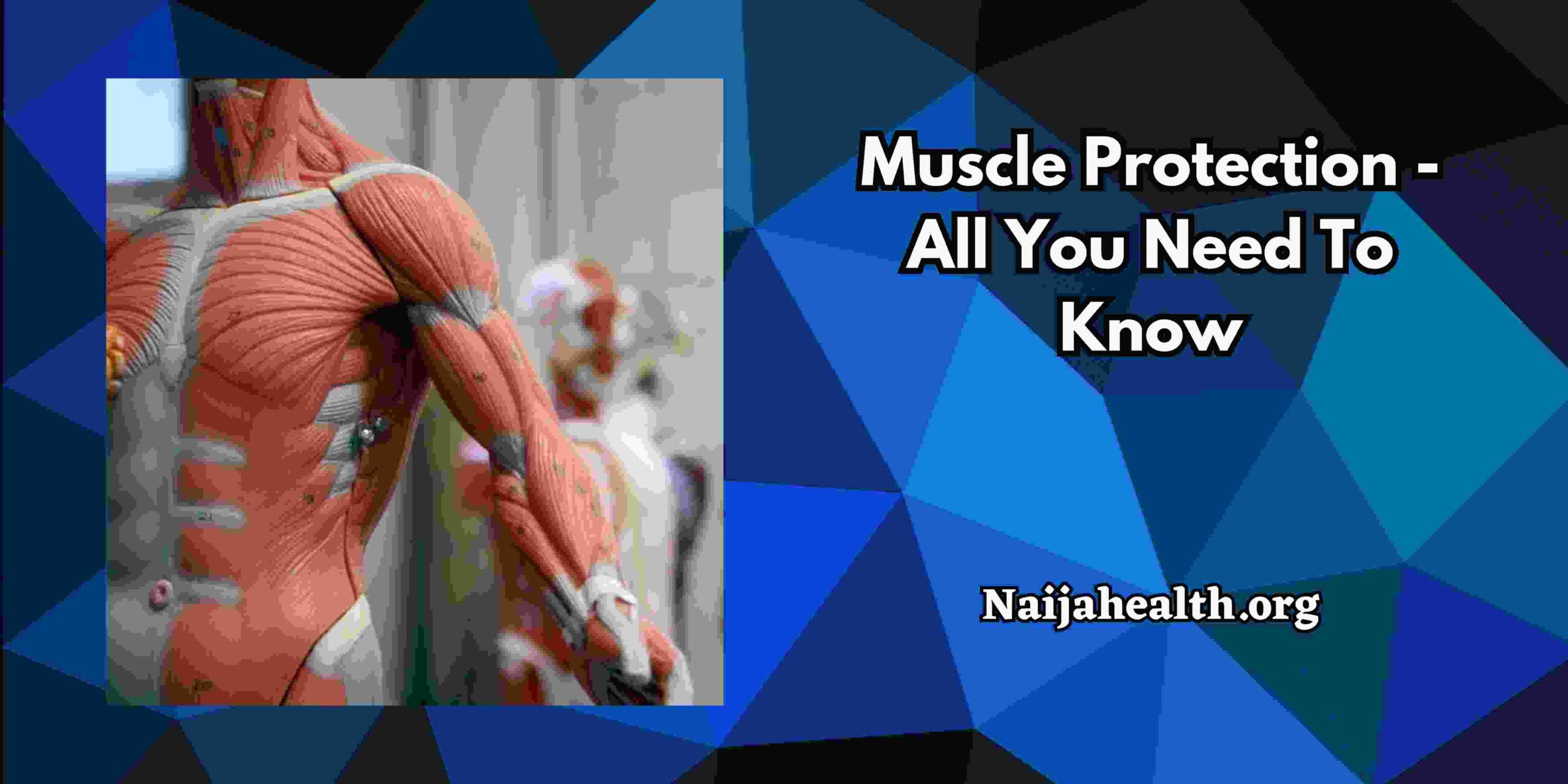
Adolescent Health Problems in Nigeria
Adolescence is an important period of life characterized by significant physical, emotional and psychological changes. In Nigeria, as in many other countries, adolescents face many health problems that can have a lasting impact on their health.
This article aims to shed light on various sub-topics related to adolescent health problems in Nigeria and explore potential solutions to address these pressing issues.
Malnutrition and its Impact on Adolescent Health
Malnutrition is an important health problem that affects a large number of Nigerian adolescents and has profound implications for their overall health.
Poor nutrition during this critical period of development can lead to a range of physical and cognitive health problems, hindering a child’s development, academic performance and future prospects.
The prevalence of malnutrition among Nigerian adolescents can be attributed to a number of factors.
- Limited access to diverse and nutritious food options, especially in rural areas, exacerbates the problem.
- Poverty and food insecurity also play an important role, as many families struggle to get a complete and balanced diet.
- Cultural practices and beliefs around diet, such as early marriage and gender inequality, may contribute to undernutrition among adolescent girls.
The impact of malnutrition on the health of adolescents is significant.
- Not getting enough essential nutrients, including vitamins, minerals, and protein, can impair growth and physical development.
- Undernourished adolescents are more susceptible to stunting, delayed sexual maturity, and impaired immune function, making them more susceptible to infections and diseases.
- Cognitive development is also severely affected by malnutrition.
- Inadequate nutrition can impair brain development, leading to poor school performance, learning disabilities, and reduced cognitive abilities.
These consequences can have long-term effects, limiting educational attainment and employment opportunities, prolonging the cycle of poverty and underdevelopment.
- Addressing undernutrition in Nigerian requires a holistic approach that encompasses many different aspects. Above all, nutrition education must be a priority.
- Adolescents need to understand the importance of a balanced diet, the role different food groups play, and the long-term consequences of malnutrition.
- Educational programs can be incorporated into school curricula, community health centers and media campaigns to raise awareness and promote healthy eating habits.
- Efforts should also focus on improving access to nutritious food. This can be achieved through initiatives such as sustainable agriculture, promoting home gardening and supporting local farmers.
- Encouraging consumption of locally available and culturally acceptable nutritious foods can be an important strategy in tackling malnutrition.
- Collaboration between government, NGOs, and healthcare providers is critical. Policies should be developed to ensure the availability and affordability of nutritious foods, especially in marginalized communities.
- Investments in health infrastructure, including the establishment of nutritional rehabilitation centers and community health centres, can facilitate the early detection and treatment of malnutrition.
Prevalence and Consequences of Teenage Pregnancy in Nigeria
Teen pregnancy is a pressing issue in Nigeria, with profound consequences for both young mothers and their children. Nigeria has one of the highest teen pregnancy rates in the world and this phenomenon is influenced by many factors including cultural norms, poverty, limited access to education, health services sexual and reproductive health.
The consequences of teenage pregnancy are varied and impact different aspects of a young mother’s life. There are significant health risks associated with teen pregnancy.
- Teen girls’ bodies are still developing and getting pregnant at such a young age increases the risk of complications during delivery. These complications can include obstructed labor, fistulas, and higher maternal and neonatal mortality. Lack of access to appropriate prenatal care exacerbates these risks.
- Education is another area that is profoundly affected by teen pregnancy. Many pregnant young girls are forced to drop out of school due to social stigma, lack of support and practical difficulties in balancing motherhood and education. This educational disruption has limited their future prospects, perpetuated the cycle of poverty and hindered their ability to achieve economic independence.
- Teen pregnancy also has social and psychological effects. Young mothers often face social isolation, discrimination and rejection from their communities.
- They may experience mental health problems such as depression, anxiety, and low self-esteem.
- In addition, babies born to teenage mothers may face challenges in their physical, emotional and cognitive development, as they are more likely to be born prematurelyand have poorer health status.
Mental Health Challenges in Nigerian Adolescents
Adolescence is a critical time marked by significant physical, emotional, and psychological changes and, without adequate support and intervention, mental health problems can be devastating. can have a profound effect on a person’s health and future prospects.
Several factors contribute to mental health problems in Nigerian adolescents.
- High stress levels, academic pressure, social expectations, and rapid social changes can all contribute to feelings of anxiety, depression, and emotional distress.
- In addition, experiences of poverty, violence and discrimination exacerbate the risk of mental health problems.
One of the biggest barriers to addressing mental health issues is the stigma surrounding mental illness. In Nigerian society, there is often a lack of understanding and awareness about mental health, leading to discrimination and reluctance to seek help. This stigma can prevent teens from seeking help and worsen their symptoms.
The consequences of untreated mental health problems in Nigerian adolescents can be very serious.
- Mental health problems can affect school performance, social relationships, and overall quality of life.
- They can also increase the risk of engaging in risky behaviors, substance abuse, self-harm, and even suicide.
- In addition, untreated mental health problems in adolescence can persist into adulthood, affecting long-term health and productivity.
To address the mental health challenges of Nigerian adolescents, a multi-faceted approach is needed.
- Raising awareness and promoting understanding of mental health is important.
Efforts should be made to educate parents, teachers, health care providers, and the public about mental health issues, symptoms, and available support services. This can help reduce stigma and facilitate early intervention.
- The integration of mental health services into primary health care is essential.
This involves training health professionals to identify and treat mental health problems during routine screening and providing access to counseling and therapy services. Collaborative efforts between mental health professionals, schools and community organizations can ensure youth access to appropriate support systems.
- Schools play an important role in promoting mental health.
Comprehensive school mental health programs should be implemented, integrating mental health education, stress management techniques, and supportive counseling services. Creating a safe space for students to discuss their feelings and seek help without fear of judgment is crucial to fostering positive mental health.
- Strengthening the mental health workforce in Nigeria is also important.
This includes training and recruiting additional mental health professionals such as psychiatrists, psychologists, and counselors. In addition, providing ongoing professional development opportunities to existing health care providers can improve their ability to address mental health challenges in a meaningful way. effective.
Sexual and Reproductive Health Problems in Nigerian Adolescents
Sexual and reproductive health problems among Nigerian adolescents are significant concerns that require urgent attention.
- Lack of comprehensive sex education.
Many Nigerian adolescents lack accurate sexual and reproductive health information, leading to misconceptions, risky behavior and increased susceptibility to sexually transmitted infections (STIs) and unwanted pregnancies.
- Comprehensive, culturally appropriate sex education programs should be implemented in schools and community settings to provide accurate information on topics such as puberty, safe sex practices, contraception and consent.
- Access to sexual and reproductive health services is another major concern. Many teenagers face barriers such as limited services, lack of privacy, and costs.
- Efforts should be made to ensure that youth have access to affordable, confidential, non-judgmental and youth-friendly health services.
HIV/AIDS Awareness and Prevention Strategies for Adolescents in Nigerian
HIV/AIDS prevention and awareness strategies are very important for young Nigerians, given the high prevalence of the virus in the country. Empowering young people with accurate information, promoting safe behaviors and providing accessible prevention services are key to combating the spread of HIV/AIDS among young Nigerians.
- Recommended condom use
Promoting appropriate and correct condom use is an effective strategy to prevent HIV/AIDS transmission. Education campaigns should emphasize the importance of condom use in sexual activity, and that condoms should be readily available and affordable to young people.
- Voluntary HIV testing counseling
Encouraging regular HIV testing is important for early detection and treatment. Promoting voluntary HIV testing and counseling services, including mobile clinics and community-based initiatives, can help raise awareness of HIV status among young Nigerians.
- Prevention of mother-to-child transmission
It is necessary to focus on the prevention of mother-to-child transmission of HIV/AIDS. Ensuring access to antenatal care, HIV testing and treatment for pregnant women can significantly reduce the risk of transmission to their babies.
- Peer education and support
Peer-led education programs can be very effective in reaching and influencing Nigerian youth. Training and empowering young people as peer educators can promote healthy behaviors, reduce stigma, and encourage open discussions about HIV/AIDS.
FAQs
What are the signs that a teen may be abused or bullied?
Signs that a teen may be a victim of violence or bullying can vary, but some common signs include unexplained trauma, changes in behavior or mood, withdrawal from social activities, decline in academic performance, loss of interest in activities previously enjoyed.
How can parents and guardians effectively address violence and bullying with their youth?
They should encourage open communication, actively listen to youth and take their concerns seriously. It is important to provide emotional support, validate their experiences, and help them develop strategies for dealing with and responding to violence or bullying
How can adolescents themselves help prevent violence and bullying?
Teens can play an active role in preventing violence and bullying by being aware of their own behavior and treating others with respect and kindness. They can intervene when witnessing bullying, assist the victim, and report the incident to authorities.
Are there any specific laws or policies in Nigeria to address youth violence?
In Nigeria, legal frameworks and policies are in place to address violence and bullying of minors. The Children’s Rights Act 2003, which has been passed by many states in Nigeria, protects children from all forms of violence, abuse and exploitation. In addition, some states have implemented anti-bullying policies in schools to ensure the safety and well-being of students.
What support services are available to youth who are abused or bullied?
There are a number of support services available to young people who have been victims of violence or bullying. Schools often have counseling services that provide emotional support and guidance. There are also non-governmental organizations (NGOs) and helplines dedicated to assisting victims of violence and bullying. These organizations provide counseling, legal support, and resources to help young people cope with the challenges they face.
Conclusion
These problems can have serious consequences for the well-being and development of young people. It is important that parents, caregivers, educators, communities, and policy makers work together to effectively address and prevent adolescent health issues.
By creating safe and inclusive environments, implementing anti-bullying policies, promoting open communication and providing supportive services, we can empower Nigerian youth to thrive and grow have a healthy life.
Education plays an important role in raising awareness, teaching empathy, and fostering positive relationships. Equipping youth with the skills and knowledge to peacefully manage conflict and combat violence is essential.



Be the first to comment